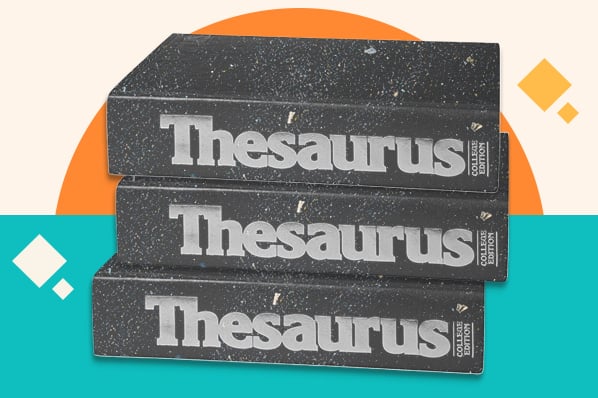Don't end an email with "thank you in advance." Many people find this phrase rude; after all, you're assuming they're going to do whatever you've requested -- essentially taking away their right to say no.

![Download Now: The Ultimate Guide to Business Communication [Free Guide]](https://no-cache.hubspot.com/cta/default/53/a7ff318c-b341-4687-b4d8-4b4c98745451.png) And it can also seem like you can't bother to follow up with a "thank you" after they've obliged you, so you're just going to say it now.
And it can also seem like you can't bother to follow up with a "thank you" after they've obliged you, so you're just going to say it now.

Free Business Communication Guide
Communication tips to use throughout your professional career.
- Communicate to your audience
- Write with clarity
- Craft effective message
- Improve word choice
Download Free
All fields are required.

Thank You for Your Attention
A better way to communicate a similar sentiment without assuming they'll do what you want? Try "Thanks for your attention." This thanks your reader for giving your request their time and energy -- even for a minute, and even if they choose or are unable to help you out.
And, yes, there are a few scenarios where "Thank you in advance" might be appropriate, such as:
- If you're working with a colleague with whom you collaborate often
- If stakeholders have already agreed to offer their help and you're simply following up with action items and next steps
- If you're offering information or an assignment your recipient requested
The one thing each of these scenarios has in common? Familiarity. Reserve "Thank you in advance" for working relationships you've already established.
For everything else, instead of writing "Thanks in advance," "Thank you for your consideration," or "Thank you in advance for your help," try these 19 other ways to say it.
"Thank You In Advance" Alternatives
- "Thank you ... "
- "Thank you for any help you can offer ... "
- "Gratefully, [your name] ... "
- "Thanks for considering this ... "
- "In any case, thanks for your help ... "
- "Many thanks ... "
- "Let me know if this isn't feasible by [date], and I'll see what I can do ... "
- "I hope this is possible ... "
- "Really appreciate your time here ... "
- "In the meantime, thanks for your time ... "
- "Thank you for doing X ... "
- "Looking forward to [discussing the results, talking about what you find, learning more about X] ... "
- "I'd be grateful if you could finish X by [date] ... "
- "You're the best ... "
- "Thanks again ... "
- "Thank you for your understanding ... "
- "I appreciate your extra time here ... "
- "I know your time is valuable and I appreciate your attention ... "
- "Let me know if I can help ... "
Thank you in advance for your consideration.
Whether you're writing to a colleague or direct report, use these "thanks in advance" alternatives to thank them for their consideration.
1. "Thank you ... "
For a simple, gracious close that won't offend anyone, sign off with "Thank you."
2. "Thank you for any help you can offer ... "
Show appreciation for your recipient's time and energy with this ending. It translates to "Even if you can't help, I appreciate your effort."
Hi Sarah,
I'm trying to get in touch with someone in charge of events for your Marketing team. I specialize in helping marketers identify lead generation strategies at global events and think I could help your team increase leads by up to 35%.
Could you point me in the right direction? Thank you for any help you can offer.
Regards,
-- Meg

3. "Gratefully, [your name] ... "
Use this alternative when your ask is slightly out-of-the-ordinary: You're giving the person less time than ideal, increasing the scope of your original request, or pulling them into a project they're not a part of.
4. "Thanks for considering this ... "
With this sign-off, you say, "Hey, it means something you're even thinking of doing this." Revealing a little humility can help you win the other person to your cause.
5. "In any case, thanks for your help ... "
After you've made your request, end with this tactful line. You're essentially telling the other person, "Whether you agree or not, I value your consideration."
6. "Many thanks ... "
This variation on the classic "thank you" is a bit more formal, making it feel more authentic.
Below is a sample email using one of these alternatives. It clearly states the request, and thanks the recipient for their consideration.
Hi Tim,
We're holding a holiday fundraiser for the children's hospital on December 5th. Our team will be managing the bake sale and I still need volunteers to cover a few more shifts at the bake sale table.
If you're available on December 5th from 5:30 PM to 600 PM or 6:00 PM to 6:30 PM, your help would be much appreciated. I've attached the sign-up form below where you can pick your shift.
Thank you for any help you can offer.
-- Peter

Thank you in advance for your help.
These "thank you in advance" alternatives can be used when you're requesting help or previously requested assistance from the recipient.
7. "Let me know if this isn't feasible by [date], and I'll see what I can do ... "
I'd recommend saving this sign-off for a direct report. It's clear your recipient can't really say no to whatever you've asked -- at most, you'll let them negotiate the deadline. And you're suggesting even that option isn't ideal.
Why is this better than "Thanks in advance"? Because it's straightforward and direct, while "thanks in advance" feels inauthentic and/or passive-aggressive.
8. "I hope this is possible ... "
#8 is an alternative to #7, but for someone who's your peer or superior. It's softer and leaves more room for pushback.
9. "Really appreciate your time here ... "
Are you telling, not asking? When the other person doesn't have a choice in the matter, you want to avoid closes that make them sound like they can opt out. This close is a polite but firm way to say "You have to do this" that won't annoy them.

Free Business Communication Guide
Communication tips to use throughout your professional career.
- Communicate to your audience
- Write with clarity
- Craft effective message
- Improve word choice
Download Free
All fields are required.

10. "In the meantime, thanks for your time ... "
Let your recipient know you recognize their attention.
11. "Thank you for doing X ... "
Explicitly acknowledge the help they're providing, whether that's "thanks for meeting with me," "thanks for reviewing this proposal," "thanks for introducing me to so-and-so," or "thanks for answering these questions."
12. "Looking forward to [discussing the results, talking about what you find, learning more about X] ... "
When you're asking someone to do some work on your behalf, this close comes in handy. You're showing your interest in the project -- validating that it's worth their effort.
Hi Carrie,
It was great to connect on the phone today. I really enjoyed learning more about your team's goals for Q4. I've had a few ideas on how we can partner to make it your biggest quarter yet.
I'm looking forward to running a few of those ideas by you in our next meeting.
How about this Friday at 10:00 A.M EST?
Regards,
-- Mark

13. "I'd be grateful if you could finish X by [date] ... "
Tactfully give the person a timeline with this sign-off.
14. "You're the best ... "
When you're emailing a close colleague who's doing you a favor, use this heartfelt closing line. (Just make sure you save it for special occasions, or you'll seem fake.)
15. "Thanks again ... "
Did you already thank your recipient once? No harm in reiterating the sentiment.
16. "Thank you for your understanding ... "
Sometimes, it's necessary to appeal to your recipient's compassionate side. Maybe you're asking for something you know they're not thrilled about -- or giving them the heads up you can't follow through on their request.
They'll have a harder time denying you after you've expressly said thanks for their patience.
17. "I appreciate your extra time here ... "
Don't we all just want to be appreciated? Sometimes, all it takes to move someone to action is to let them know you notice them and their efforts and to thank them for spending their time on you.
18. "I know your time is valuable and I appreciate your attention ... "
Again, letting your prospect know you realize they're carving out time especially for you is always appreciated. They don't have to help you out, and it's a good idea to recognize that.
19. "Let me know if I can help ... "
Is there something you could do to make this ask easier for your prospect? Try to take these actions proactively, and always let them know you're happy to step in and shoulder some of the work.
Here's an example email using a "thanks in advance" alternative.
Hi Kevin,
Hope this email finds you well! I'm building the slide deck for our monthly sales performance meeting. I'd be grateful if you could finish your reporting slides by Monday November 5th.
Thank you,
Karen

With these many options, there's no need to end emails with "thank you in advance." Make these swaps ASAP to sound more courteous (and increase the odds of a positive reply!)
Looking for more ways to improve your emails? Check out these ASAP alternatives next.

Free Business Communication Guide
Communication tips to use throughout your professional career.
- Communicate to your audience
- Write with clarity
- Craft effective message
- Improve word choice
Download Free
All fields are required.



![How to Introduce Yourself in an Email in [Almost] Every Situation](https://www.hubspot.com/hubfs/how-to-introduce-yourself-over-email-1.jpg)


![23 Sales Email Templates With 60% or Higher Open Rates [+ Bonus Templates]](https://www.hubspot.com/hubfs/sales-email-templates-2.jpg)



